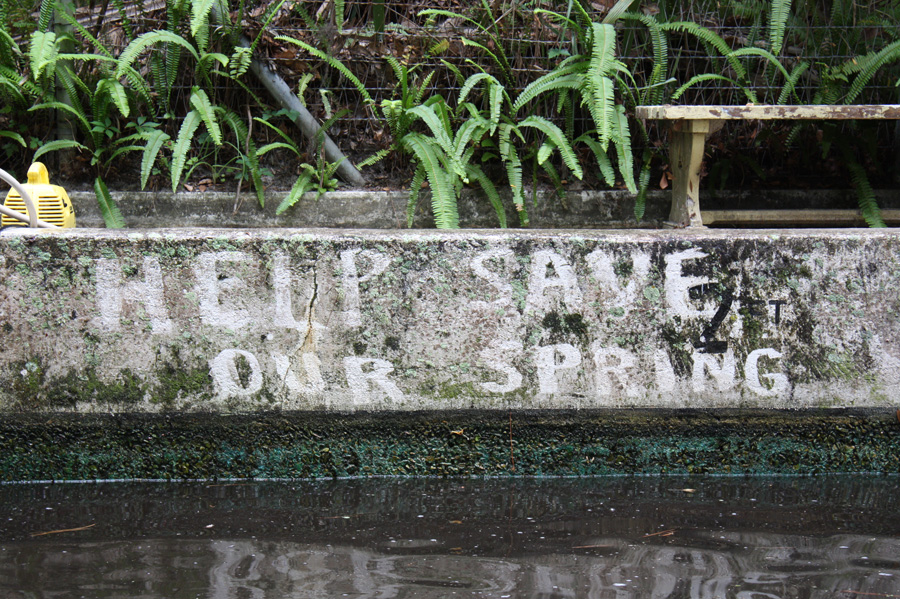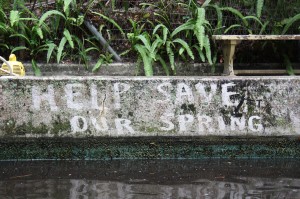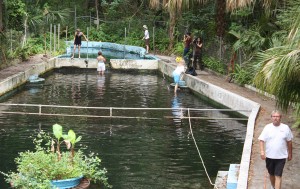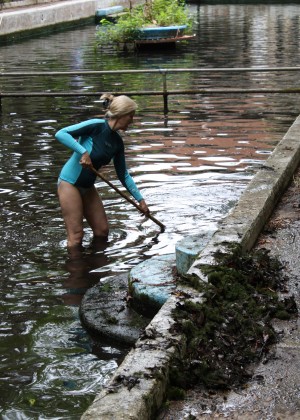Volunteers showed up at Glen Springs in Gainesville, Florida, Saturday morning to restore a once popular bathing area. Never heard of Glen Springs? That’s because it’s on private property, tucked behind the Elks Lodge on NW 23rd Avenue next to Alfred Ring Park.
Linda Califf, a member of the lodge, was inspired in the summer of 2011 to begin clean up of the headspring and the pool and was joined by other Elks lodge members and some friends. Six hours of hard work were rewarded with a sparkle in the water that replaced the formerly dense mats of algae.
Those involved in the project said the water has begun to flow more freely from the spring that is one of six that flow into the Glen Spring run and then on to Hogtown Creek.
Saturday’s clean cleanup effort attracted new volunteers. Some were curious neighbors and others came to because they remembered the pool from their childhood.
“I came here for swimming lessons back in the 1960s,” said Paul Czapiga, owner of Gainesville Pool Renovators. Czapiga donated his time and equipment to help with the restoration.
The three-tiered pool was designed by architect Guy Chandler Fulton, who also designed several buildings on the University of Florida campus including the Smathers Libraries and some of the dormitories.
Califf looked into the history of the pool and created a pamphlet to promote clean up. According to her research, the pool was built in the 1920s by Cicero Addison Pound. From the ‘20s until the 1970s the pool and the attached pavilion (now the Elk Lodge) had been a place for recreation, dancing, and swimming. Lifeguards drained and cleaned the pool every Sunday, Califf discovered.
Springs enthusiast Lesley Gamble, who teaches at the University of Florida, donned a wetsuit and climbed into the pool to rake algae from the bottom. By the time a dozen or so volunteers had climbed in, the water had become murky.
“It will settle down again,” Califf said, pointing to the crystal clear water emerging from a little pipe out of the spring vent.
“This is living water,” Gamble said, and then began to tell Califf about a polluted river in China that was diverted as a demonstration project to show citizens how the water could be cleaned through aeration and vegetative filters.
The installation, called The Living Water Garden, she said, could be an inspiration for Glen Springs. The project brings together art, education, and community, said Gamble, who recently taught a class called Art, Water, and Ecology at the university.
A fund has been established by the Elks to help support the project. To find out more about Glen Springs, contact Califf at lindacaliff@att.net.



